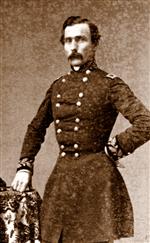 Frost sent the following message to Lyon outside his lines: [407]
Frost sent the following message to Lyon outside his lines: [407]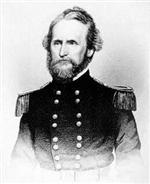
When all of his columns had arrived and surrounded Camp Jackson, Captain Nathaniel Lyon sent Bernard G. Farrar to deliver a message Lyon had composed the night before demanding the surrender of all persons and arms at Camp Jackson within 30 minutes. Frost sent back a note to Lyon asking for more time to decide, but Lyon dismissed his request and again demanded the unconditional surrender within 10 minutes or Lyon would order his forces to open fire on the camp.
 Frost sent the following message to Lyon outside his lines: [407]
Frost sent the following message to Lyon outside his lines: [407]
SIR: I never for a moment having conceived the idea that so illegal and unconstitutional a demand as I have just received from you would be made by an officer of the U.S. Army I am wholly unprepared to defend my command from this unwarranted attack, and shall therefore be forced to comply with your demand.
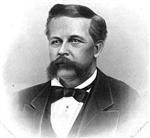
A number of the state militiamen were able to escape through the Federal lines. Robert S. Bevier, a member of the Missouri State Militia, later wrote about his experience at Camp Jackson: [41]
We made our escape safely from the camp and the city by climbing a high fence and traversing alleys, and in the distance heard the faint report of the brutal volley that was poured into an unresisting assemblage of men, women and children. Our comrades in the camp were captured, lodged in filthy barracks, some of them detained for weeks, and all of them required to give a parole.
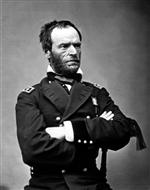
William T. Sherman, at the time was a private citizen living in St. Louis, later wrote about the mood of the city on the morning of May 10th: [42]
[That] morning I . . . heard at every corner of the streets that the "Dutch" were moving on Camp Jackson. People were barricading their houses, and men were running in that direction . . . I felt as much interest as anybody else, but staid at home, took my little son Willie, who was about seven years old, and walked up and down the pavement in front of our house, listening for the sound of musketry or cannon in the direction of Camp Jackson . . . Edging gradually up the street, I was in Olive Street just about Twelfth, when I saw a man running from the direction of Camp Jackson at full speed, calling, as he went, “They've surrendered, they've surrendered!”
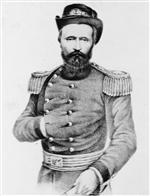
Ulysses S. Grant, serving as a mustering officer for the State of Illinois, happened to be in St. Louis during the Camp Jackson Affair: [43]
I witnessed the scene. I had heard of the surrender of the camp and that the garrison was on its way to the arsenal. I had seen the troops start out in the morning and had wished them success. I now determined to go to the arsenal and await their arrival and congratulate them.